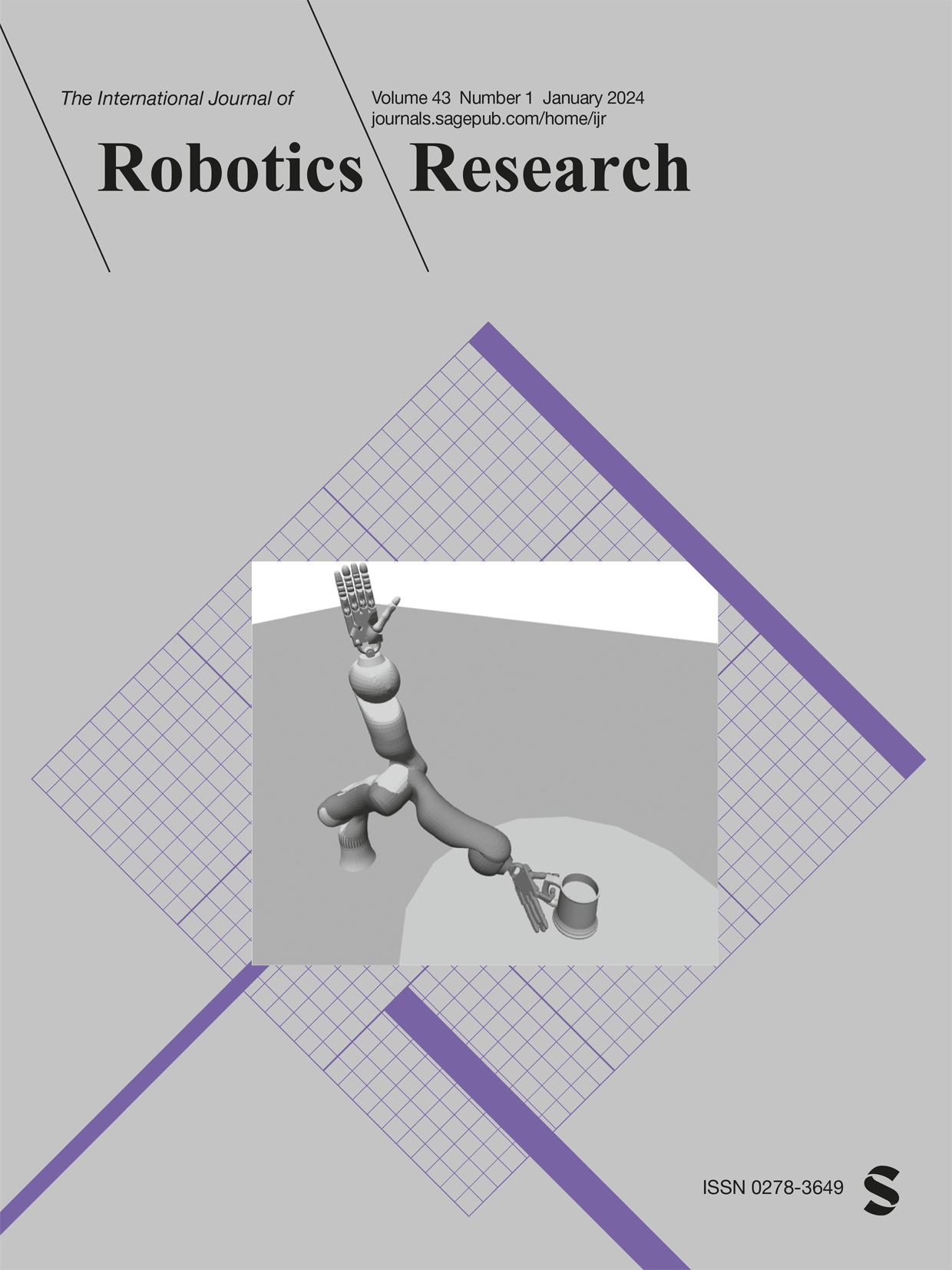Robust grasping across diverse sensor qualities: The GraspNet-1Billion dataset
IF 5
1区 计算机科学
Q1 ROBOTICS
引用次数: 0
Abstract
Robust object grasping in cluttered scenes is vital to all robotic prehensile manipulation. In this paper, we present the GraspNet-1Billion benchmark that contains rich real-world captured cluttered scenarios and abundant annotations. This benchmark aims at solving two critical problems for the cluttered scenes parallel-finger grasping: the insufficient real-world training data and the lacking of evaluation benchmark. We first contribute a large-scale grasp pose detection dataset. Two different depth cameras based on structured-light and time-of-flight technologies are adopted. Our dataset contains 97,280 RGB-D images with over one billion grasp poses. In total, 190 cluttered scenes are collected, among which 100 are training set and 90 are for testing. Meanwhile, we build an evaluation system that is general and user-friendly. It directly reports a predicted grasp pose’s quality by analytic computation, which is able to evaluate any kind of grasp representation without exhaustively labeling the ground-truth. We further divide the test set into three difficulties to better evaluate algorithms’ generalization ability. Our dataset, accessing API and evaluation code, are publicly available at www.graspnet.net.跨不同传感器质量的鲁棒抓取:graspnet - 10亿数据集
在混乱的场景中,健壮的物体抓取是所有机器人抓取操作的关键。在本文中,我们提出了graspnet - 10亿基准测试,其中包含丰富的真实世界捕获的杂乱场景和丰富的注释。该基准测试旨在解决混乱场景平行手指抓取的两个关键问题:真实世界训练数据不足和缺乏评估基准。我们首先提供了一个大规模的抓取姿态检测数据集。采用了基于结构光和飞行时间技术的两种不同深度相机。我们的数据集包含97280张RGB-D图像,超过10亿个抓取姿势。总共收集190个杂乱场景,其中100个为训练集,90个为测试集。同时,我们建立了一个通用的、用户友好的评价系统。它通过解析计算直接报告预测的抓取姿势的质量,能够评估任何类型的抓取表示,而无需详尽地标记基本事实。为了更好地评价算法的泛化能力,我们进一步将测试集划分为三个难度。我们的数据集,访问API和评估代码,可在www.graspnet.net上公开获取。
本文章由计算机程序翻译,如有差异,请以英文原文为准。
求助全文
约1分钟内获得全文
求助全文
来源期刊
CiteScore
22.20
自引率
0.00%
发文量
34
审稿时长
6-12 weeks
期刊介绍:
The International Journal of Robotics Research (IJRR) has been a leading peer-reviewed publication in the field for over two decades. It holds the distinction of being the first scholarly journal dedicated to robotics research.
IJRR presents cutting-edge and thought-provoking original research papers, articles, and reviews that delve into groundbreaking trends, technical advancements, and theoretical developments in robotics. Renowned scholars and practitioners contribute to its content, offering their expertise and insights. This journal covers a wide range of topics, going beyond narrow technical advancements to encompass various aspects of robotics.
The primary aim of IJRR is to publish work that has lasting value for the scientific and technological advancement of the field. Only original, robust, and practical research that can serve as a foundation for further progress is considered for publication. The focus is on producing content that will remain valuable and relevant over time.
In summary, IJRR stands as a prestigious publication that drives innovation and knowledge in robotics research.

 求助内容:
求助内容: 应助结果提醒方式:
应助结果提醒方式:


